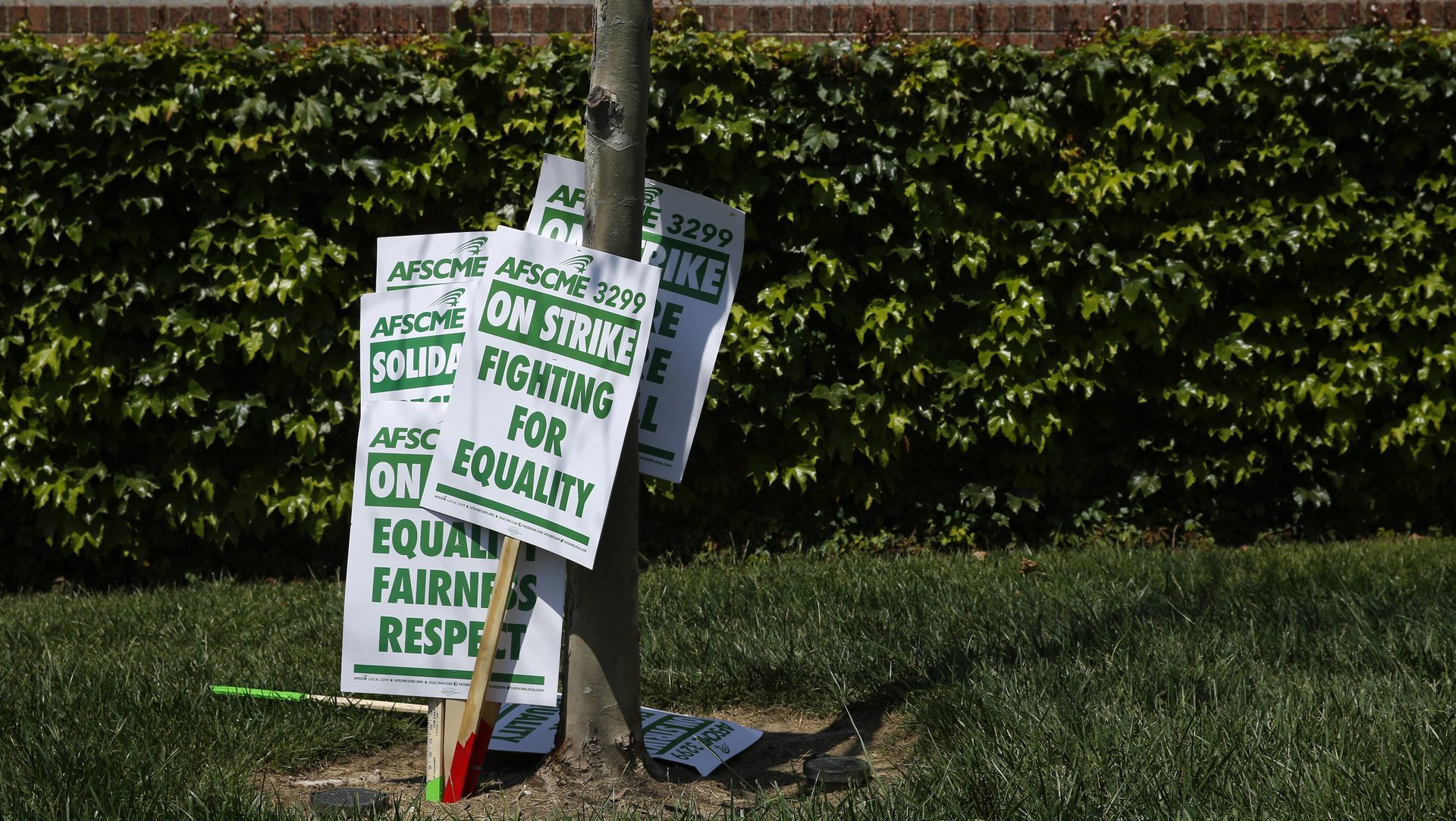New study finds most Americans don’t really care about inequality
Rich Americans are getting much richer. Poor Americans are staying poor. And middle-class Americans don’t really care either way.


Rich Americans are getting much richer. Poor Americans are staying poor. And middle-class Americans don’t really care either way.
A survey released today, conducted by NPR, the Robert Wood Johnson Foundation, and the Harvard School of Public Health, interviewed a sample of 1,885 nationally representative adults to gauge their experiences and thoughts on income inequality.
Remarkably, this is one of the few surveys on inequality that has actually interviewed members of the so-called 1%—Americans with a yearly household income of at least $500,000. “Trying to find the 1% of any groups is incredibly difficult,” Robert Blendon, professor of public health at Harvard and one of the authors of the study, told Quartz.
The other brackets analyzed in the survey are higher-income households ($100,000 to $499,999 a year), middle-income ($35,000 to $99,000) and lower-income (below $35,000 a year).
The results, Blendon says, revealed significant financial insecurity, coupled with strong anxiety about the future, among middle- and lower-income households. Only 38% of middle-income people are satisfied with their personal financial situation, and only 20% of the lower-income ones are, the study found. By comparison, 87% people in the top 1% are satisfied with their finances, and have an overall level of satisfaction of 90%, compared to 66% for middle-income and 44% for lower-income people.
The poll paints the picture of a country that is rather divided when it comes to the experiences of life. For example: While 31% of the people in the middle-income bracket and 38% of those in the lower-income brackets have serious problems paying for medical bills, only 5% of the higher-income groups does.
Similarly, while only 4% of top earners would struggle to pay an unexpected $1,000 expense, 34% of middle-income and 67% of lower-income people would.
In the politics of the 2020 election, income inequality has often dominated discussion. Democratic candidates are specifically addressing it as a problem for the middle class, and any award-winning economist’s work as of late has focused on it. Yet the people representing the middle class in this survey were not particularly concerned about it.
Overall, fewer than half the people surveyed across the income groups think inequality—seen as the income difference between the rich and the middle and lower class—is a serious issue. In fact, slightly more high-income people (42%) than middle-income ones (41%) think it’s a serious problem. And barely half the people interviewed think it should be a priority of some sort for the government to reduce inequality. The only bracket where the majority of respondents said the government should do more to alleviate inequality was those in the lower-income bracket (67%).
“People are having problems with their lives but are not blaming them on income distribution,” Blendon said. Despite so much political and academic focus on the subject, he said “it’s not as clear to people that inequality is an issue.”
One of the reasons for this discrepancy might be the so-called American dream. The middle class still believes in it. And some 45% of them think they are on their way to achieving it. Despite recognizing that it’s harder now to get a college education or earn a middle-class income than when they were young, 78% of middle-class parents also think their children will experience this dream. Lower-income people are also more likely to believe that factors like growing up in an upper-class neighborhood, having educated parents, or knowing the right people are more important to achieving economic success than higher income people are.
This belief in the American dream may be mitigated by their sense of financial insecurity and anxiety about their financial future, but Blendon says the majority of Americans still aren’t as concerned about inequality as the political situation may suggest.